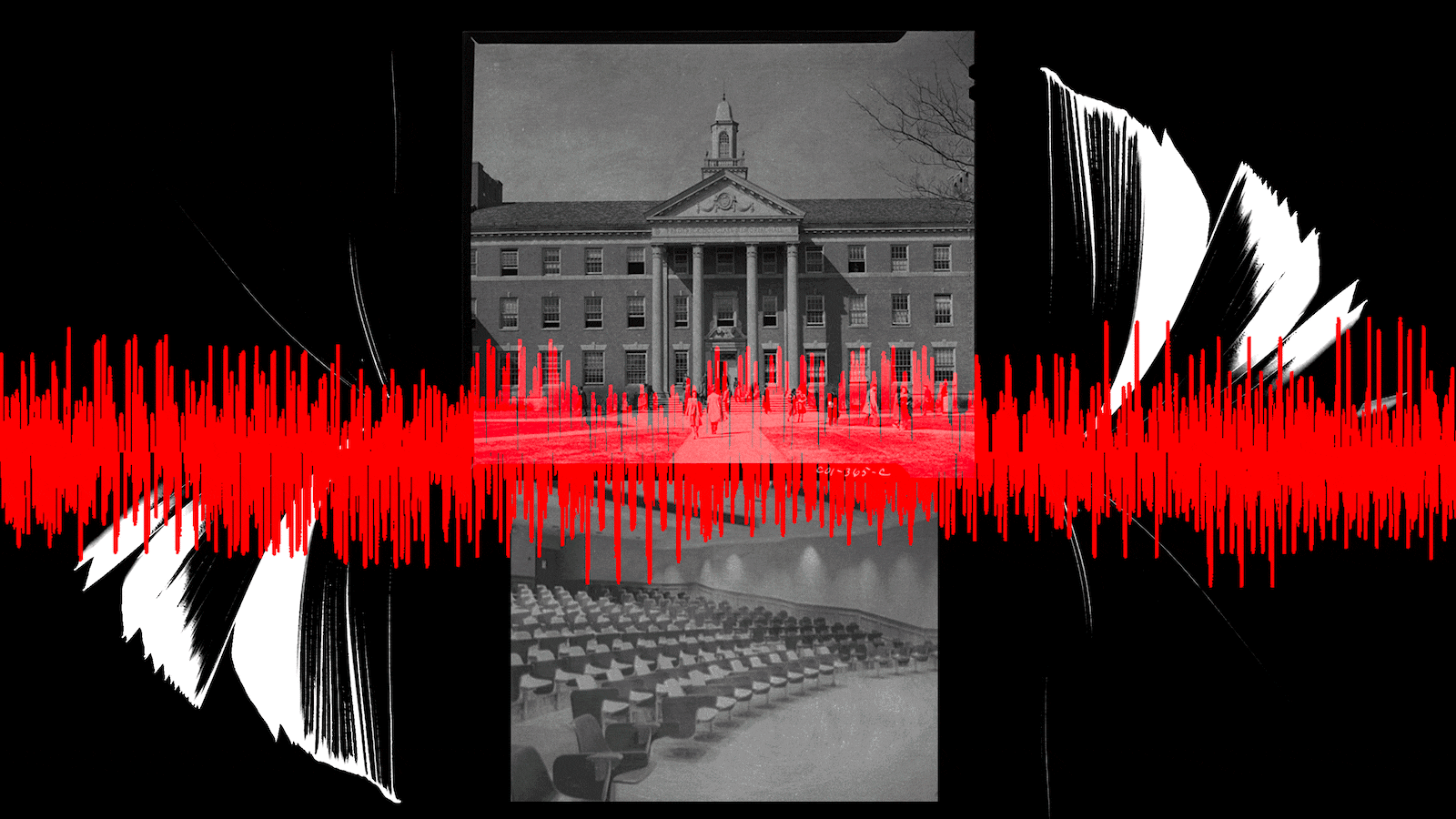Earlier this month, Shakespeare scholar Daniel Pollack-Pelzner received a substantial settlement in a whistleblower suit against his former employer, Linfield University. Given the Oregon private school’s notorious record on faculty speech, this is certainly a result worth celebrating—but not without remaining vigilant for ongoing threats to outspoken faculty across college campuses.
Pollack-Pelzner’s colleagues elected him faculty trustee in 2019—a post that entailed “speak[ing] to issues of concern to the faculty and… seek[ing] and promot[ing] opportunities for faculty-trustee interaction and cooperation.” The then-tenured English professor ably undertook this role by challenging the Board of Trustees’ mishandling of sexual misconduct allegations, as well as bringing reports of antisemitism to light.
Namely, Pollack-Pelzner spoke out against President Miles Davis and Board of Trustees Chair David Baca’s inaction on accusations of sexual harassment by faculty members and former students against Linfield trustees. When Pollack-Pelzner referenced such allegations in a tri-annual report to the board, the chair reportedly redacted pages of the document. Tensions grew as Pollack-Pelzner was barred from attending future executive sessions.
In light of the board’s apathy, Linfield faculty passed a vote of no confidence in Baca’s ability “to continue to provide leadership that promotes transparency, accountability, and responsiveness on issues of sexual assault and sexual misconduct.” In March 2021, amid continued administrative inertia and indications that the board was looking to dissolve the position of faculty trustee altogether, Pollack-Pelzner took to Twitter to air his grievances.
The following month, the English professor’s work laptop shut down during an online meeting. Investigating, he sent an email from his personal address to his work address and received a troubling automated response: “Daniel Pollack-Pelzner is no longer an employee of Linfield University.”

Pioneer Hall at Linfield College, McMinnville, Oregon.
Photo Illustration by Erin O’Flynn/The Daily Beast/DerRichter/Wikimeida CommonsLinfield justified the firing on the grounds that Pollack-Pelzner had been “insubordinate” and “interfered with the university’s administration of its responsibilities.” When pressed by The Chronicle of Higher Education on Linfield’s circumvention of its own faculty handbook’s due process guidelines, the president “said he was unaware of the guidelines, hadn’t seen the most recent version of the faculty handbook, didn’t know who had updated it, and didn’t believe it had been approved by the administration.”
In April 2021, Linfield faculty passed a vote of no confidence in Davis and Baca, and also called for their resignations for having fostered “an intimidating and hostile work environment, harmed members of the Linfield community, and damaged Linfield’s reputation.” (Baca resigned in September 2021.) At the time, Linfield’s actions drew the ire of the American Association of University Professors (AAUP), the Foundation for Individual Rights and Expression (FIRE), student protestors, and more than 1,000 professors who signed a petition decrying the firing as “shooting the messenger.”
In June 2022, the AAUP published an extensive report on the Pollack-Pelzner affair, censuring Linfield for creating “deplorable” conditions for academic freedom and shared faculty governance. Linfield continues to deny wrongdoing on the school’s part.
The administration’s decision to tatter Linfield’s name by repressing criticisms, rather than take accountability for the well-being of the Linfield community, is a brazen instantiation of what political writer Jon Schwarz has coined, “The Iron Law of Institutions”: those at the helm of an institution tend to prioritize maintaining their position of power therein over the good of the institution itself.
One can only hope that Linfield’s costly settlement terms will encourage its administration and others—particularly at private institutions unbeholden to the First Amendment—to address misdeeds rather than muzzle those who draw attention to them.
Yet it's difficult to regard the settlement as but a single triumph in the face of considerable efforts, arising largely out of Republican-controlled state houses and other public bodies, to chip away at tenure protections and limit faculty’s ability to speak out against their employers.
Take, for example, the dismissal of 33 professors this fall at Emporia State University, a public university in Kansas. There, a pandemic-era “workforce management” framework passed by the Kansas Board of Regents afforded president Ken Hush (a former Koch Industries executive whose shadowy appointment, despite a resume sans higher education experience, has raised some eyebrows) the ability to conduct mass layoffs of tenured faculty.
On Sept. 13, 2022, tenured Emporia State professor Max McCoy criticized Hush’s implementation of the framework in a local newspaper, writing: “I may be fired for writing this”—and, ecce, McCoy was dismissed two days later.
According to the Popular Information newsletter, another firee, Dan Colson, had been a vocal critic of Koch Industries during his 11 years at Emporia State. At a school with overt ties to Koch organizations (see: the school’s “Koch Center for Leadership and Ethics”), tenure protections had previously provided Colson vital intellectual armor.
These firings of long-tenured professors have raised suspicions of retaliatory and ideological motivations, which Emporia has denied (and the AAUP is currently investigating).

Plumb Administration Building & Albert Taylor Hall at Emporia State University.
Photo Illustration by Erin O’Flynn/The Daily Beast/Ethan James Scherrer/Wikimedia CommonsAt present, North Dakota’s state legislature is considering a troubling bill that aims to “accelerate workforce development” by giving presidents at two public universities, Bismarck State College and Dickinson State University, greater leeway in firing tenured professors. The legislation has been endorsed by Dickinson State’s president but decried by critics as an “anti-whistleblower bill in disguise.”
A previous version of the legislation would have made “inadvertently harming the institution” through professors’ social media use a fireable offense. Even in its amended form, tenure protections would become more subject to the whims of university presidents, who could review professors’ tenure whenever they consider it to be “in the institution’s best interest” and ax them for failing to toe the line of the administration’s “directives.” The legislation would forbid faculty committees from reviewing terminations and allow “no complaint, lawsuit or other allegation against a president or other administrator” for exercising their newfound power.
Such developments are truly menacing, considering the direct relationship that exists between professors’ job security and their ability to speak out against their institutions. Note, for instance, how a Linfield professor shared allegations with Pollack-Pelzner yet, as per the AAUP’s June 2022 report, was “reluctant to file a formal complaint” against a board member as she was not yet tenured and remained “acutely conscious that the board had the final say on tenure recommendations.”
As the tenure-track erodes, the stifling fear of retaliation only becomes more commonplace in academia.
But, of course, tenure is already beyond reach for most instructors at U.S. institutions of higher learning. Over three-fifths of university faculty members, a precarious majority employed on contingent appointments, know too well how fears of running afoul of one’s employer engender self-censorship. Problematic legislation is thus just one part of the problem.
Unchallenged, conservative efforts to gut tenure, alongside the mass casualization of the academic workforce, threaten to create an academy in which ever-unaccountable university administrations lord over an ever-docile professoriate. Such trends require steadfast opposition and academic solidarity, lest the courageous likes of Pollack-Pelzner go from endangered species to extinct.
(CORRECTION: A previous version of this article incorrectly stated that Bismarck State’s president endorsed the North Dakota legislation, we regret the error.)









